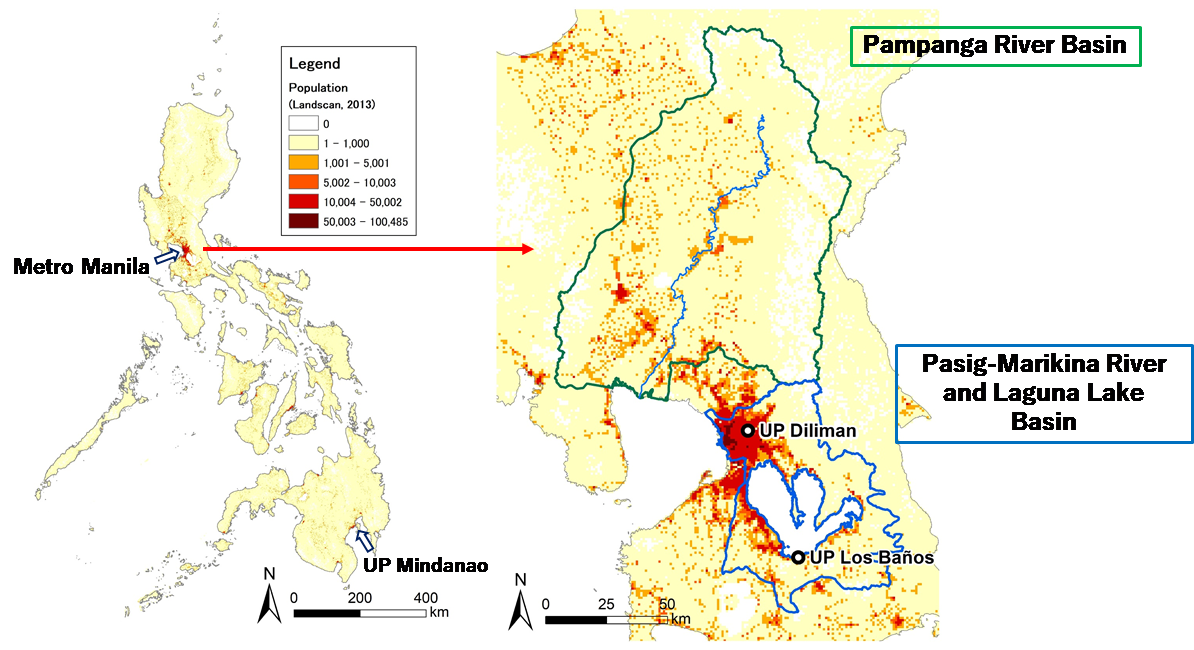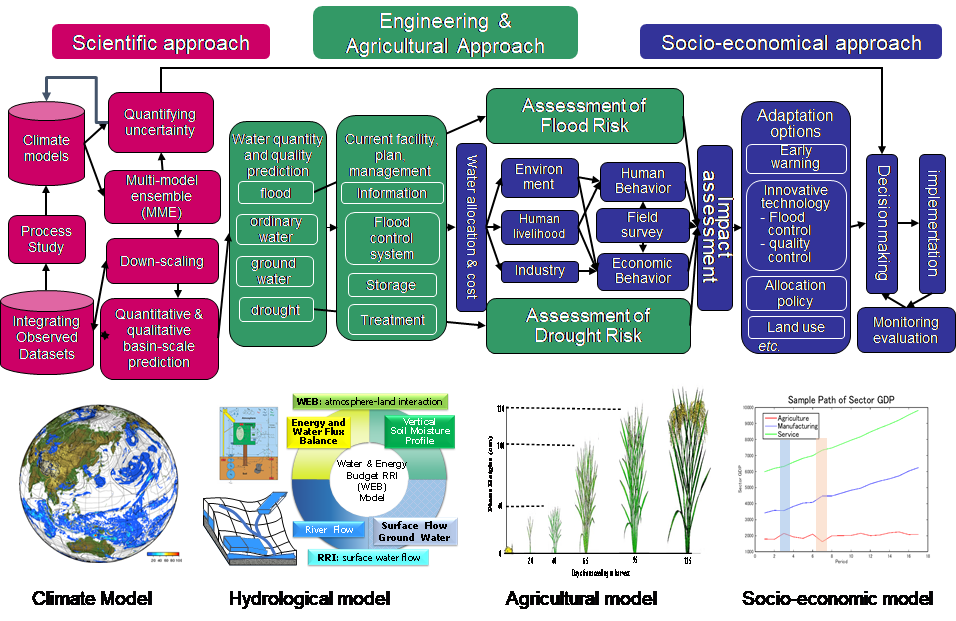The International Centre for Water Hazard and Risk Management (ICHARM) of the Public Works Research Institute (PWRI) in Japan is participating in “The Project for Development of a Hybrid Water-Related Disaster Risk Assessment Technology for Sustainable Local Economic Development Policy under Climate Change in the Republic of the Philippines (HyDEPP)” under the Science and Technology Research Partnership for Sustainable Development (SATREPS) with University of Tokyo, Tohoku University, the University of Shiga Prefecture, Nagoya University and Kyoto University. The project is funded by the Japan International Cooperation Agency (JICA) and the Japan Science and Technology Agency (JST).
SATREPS is a Japanese government program that promotes international joint research. The program is a collaboration between JST, which provides competitive research funds to research organizations in Japan, and JICA, which provides development assistance (ODA) in the counterpart country. The aims of SATREPS are strengthening international cooperation, acquiring new knowledge and technology that lead to the resolution of global issues and the advance of science and technology, and enhancing capacity development. The counterpart on the Philippine side is the University of the Philippines LosBaños (UPLB).
In the Republic of the Philippines, it is feared that frequent water-related disasters by future climate change will hinder the sustainable development of local municipalities and exacerbate overconcentration in Metro Manila. This project aims to create hybrid water-related disaster risk assessment models (Figure 1) by combining climate-change, hydrological, agricultural, and economic models and conduct objective assessments of the effectiveness of investing in disaster prevention measures in the Pampanga River basin and the Pasig-Marikina River and Laguna Lake basins (Figure 2) in the environs of Metro Manila. Policy recommendations for sustainable economic development in urban and rural areas under climate change will be formulated through a transdisciplinary approach using the hybrid water-related disaster risk assessment models in order to achieve the sustainable economic development of the country by improving water-related disaster resilience and promoting balanced national land development.
The project consists of four activities: data collection and integration, assessment of flood and drought risk, assessment of water-related disaster resilience, and policy recommendation for sustainable local economic development. The outline of the project is shown in the table below. The project information is also available on the JST website at the following address:
JST page: https://www.jst.go.jp/global/english/kadai/r0109_pilipinas.html
| Principal organization and researcher in Japan | Dr. OHARA Miho, Professor, Center for Integrated Disaster Information Research, Interfaculty Initiative in Information Studies, the University of Tokyo |
| Partner organizations in Japan | Public Works Research Institute, Tohoku University, the University of Shiga Prefecture, Nagoya University and Kyoto University |
| Counterpart country | The Republic of the Philippines |
| Principal organization and researcher in the counterpart country | Dr. Fernando C. Sanchez, Jr, the University of the Philippines Los Baños (UPLB) |
| Partner organizations in counterpart country | the University of the Philippines Diliman, the University of the Philippines Mindanao |
| Cooperating organizations in the counterpart country | Department of Science and Technology (DOST), Department of Public Works and Highways (DPWH), Laguna Lake Development Authority (LLDA), Metropolitan Manila Development Authority (MMDA) |
| Period of JST Project in Japan | Preparation Period: April 2019-March 2020 Project Period: April 2020-March 2026 (6 years) |
| Period of JICA Project in the counterpart country | June 2021- May 2026 (5 years) (Note: The project started in June 2021 because the start was postponed due to the COVID-19 pandemic) |
 Figure 1 Target area of the project
Figure 1 Target area of the project Figure 2 Process of policy recommendation by transdisciplinary approach
Figure 2 Process of policy recommendation by transdisciplinary approach